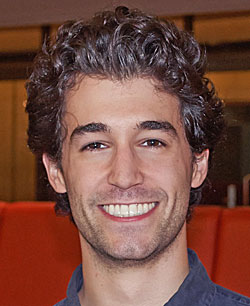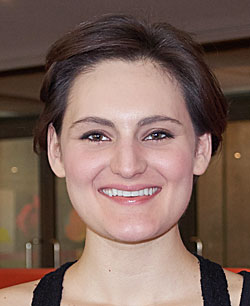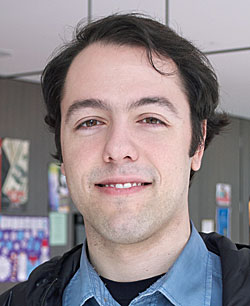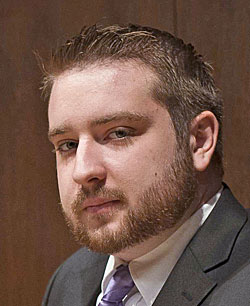Column Name
Title
As part of the Center Stage Technology issue, students talked about technology and the creation of new works.
Body

One way it’s influenced the opera world can be seen in Nico Muhly’s (M.M. ’04, composition) new opera Two Boys, whose storyline revolves around Internet chat rooms. Technology has created for greater staging capabilities and a more immersive experience for the audience, which in turn allows for a larger sphere of creativity.
Alex McKissick, Third-Year Voice Student

While I truly believe there always will be people and venues that value the communication of the human spirit over technological tricks (screens, projections, prerecorded sounds and music, and sophisticated lighting), the modern commercial standard for a new and exciting piece of theater often seems to embody the latter.
Mary Chieffo, Third-Year Actor

For brass players, one of the most interesting aspects of new technology is combining pop and rap music. This opens a new genre, a new brand, and a new audience. We can branch out from playing brass quintets, etc., and create a groove while playing instruments we love. This is more marketable and at times more pleasing to the public at large.
Jonathan Heim, Second-Year Master’s Trumpeter

We have easier access to digitized materials, such as manuscripts and treatises, that were previously inaccessible and unknown. And that means that audiences can, for the first time in centuries, be exposed to this music.
Edson Scheid, First-Year Historical Performance Violinist

Art in this day and age is so much more accessible. YouTube is now a hub to showcase your own work and also to find new inspirations. Choreographers are always on the lookout for groundbreaking ideas that they can combine to make a one-of-a-kind masterpiece. Technology is constantly expanding, thus inspiring brilliant new creations and changing the face of dance.
Ashley Hagler, Fourth-Year Dancer

In many cases, composers and artists are limited by the physical capabilities of the performer. With the introduction of electronics into music and movement, there are a myriad of sound and visual worlds that have yet to be explored. The repertoire that includes electronics is increasing at an astounding rate.
Sam Jones, Third-Year Trumpeter

As machines replace musicians, music is becoming cheaper and easier to produce, but often of lower quality. With the advent of music-notation software, craft is becoming less essential and skills like the art of imagining music are beginning to die out. Maybe in 15 years, composers won’t have to know how to read music and their music will never be played by real-life musicians. It’s a scary new world.
Zachary Green, Third-Year Composer




